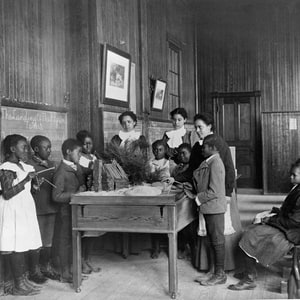Can Peace Talks End the Kashmir Conflict? the Kashmir conflict, a long-standing territorial dispute between India and Pakistan, has left deep scars on the region for decades. Despite various efforts to bring about peace, the conflict remains unresolved, continuing to affect the lives of millions. In this context, Kashmir peace talks have emerged as a potential avenue for resolution. However, can they truly end the conflict, or are they merely an illusion of progress?

The Complex History of the Kashmir Conflict
This decision triggered the first Indo-Pakistani war in 1947-1948, and the region has been a source of conflict ever since. The status of Kashmir remains a deeply contentious issue, with both nations asserting their sovereignty over the region.
The Role of Kashmir Peace Talks
Over the years, Kashmir peace talks have been attempted by various governments, organizations, and intermediaries. These talks, whether bilateral or multilateral, aim to reach a solution that addresses the territorial dispute while ensuring the security and autonomy of the people of Kashmir. However, several challenges stand in the way of these negotiations.
One of the most significant obstacles is the deeply entrenched positions of India and Pakistan. India considers Jammu and Kashmir an integral part of its territory, while Pakistan sees the region as a disputed territory that should be resolved through a plebiscite or by granting it autonomy under its control. This fundamental disagreement creates an impasse, with both sides unwilling to make significant compromises.
In addition to these territorial claims, there is also the matter of the internal dynamics within Jammu and Kashmir itself.
Moreover, the involvement of external actors—such as China, the United States, and international organizations—adds complexity to the situation. These actors often have their own interests in the region, and their involvement can either facilitate or hinder progress in Kashmir peace talks.
Historical Attempts at Peace
There have been several significant attempts to resolve the Kashmir conflict through dialogue, but each has faltered for various reasons. The most notable of these efforts include the Shimla Agreement (1972), the Lahore Declaration (1999), and the Agra Summit (2001).
The Shimla Agreement, signed between India and Pakistan after the 1971 war, emphasized the importance of bilateral dialogue and peaceful resolution. However, despite its lofty aspirations, the agreement failed to address the core issue of Kashmir and did little to reduce tensions in the region. The Lahore Declaration in 1999, signed by Indian Prime Minister Atal Bihari Vajpayee and Pakistani Prime Minister Nawaz Sharif, also promised to strengthen relations between the two countries, but it was undermined by the Kargil War later that year, which reignited hostilities.
The Agra Summit in 2001, where leaders of both nations met to discuss Kashmir and other issues, ended in failure when both sides could not reach an agreement. In the years that followed, sporadic talks and back-channel diplomacy have been attempted, but the issue remains unresolved.
The Challenges of Kashmir Peace Talks
The question remains: can Kashmir peace talks lead to an end to the conflict? The answer is complicated. While dialogue is an essential component of any peace process, several challenges must be overcome for these talks to be successful.
1. Deep-Rooted Distrust
The historical mistrust between India and Pakistan is a major barrier to meaningful peace. Both nations have fought wars over Kashmir, and their political and military leaders have often used the conflict to rally domestic support. This deep-seated mistrust is not easily overcome, and it is further exacerbated by frequent flare-ups of violence along the Line of Control (LoC), the de facto border between Indian and Pakistani-controlled Kashmir.
2. Domestic Politics
Both India and Pakistan face domestic political pressures that make peace difficult to achieve. In India, the Kashmir issue is a highly sensitive topic, and any concessions made to Pakistan are often seen as politically risky. Nationalist sentiments in India, particularly among the Hindu majority, complicate any peace process that involves territorial compromise.
Similarly, in Pakistan, the military establishment plays a dominant role in shaping policy on Kashmir. The Pakistani military views Kashmir as a central issue in its relationship with India, and any concessions on the issue would be seen as a betrayal of the Kashmir cause. Domestic political considerations in both countries often prevent leaders from pursuing bold and necessary steps toward peace.
3. The Role of Militancy
The presence of militant groups in Jammu and Kashmir is another significant challenge to peace talks. These groups, many of whom are backed by Pakistan, have waged a violent insurgency against Indian rule in Kashmir for decades. Their actions complicate the peace process, as they undermine efforts to create a stable and peaceful environment for negotiations.
Moreover, the rise of homegrown militancy in Kashmir, fueled by discontent with Indian governance, has further escalated tensions. Any peace process must address the grievances of the local population and find ways to disarm and reintegrate militants into society, a task that is easier said than done.
4. The Kashmiris’ Voice
One of the most overlooked aspects of Kashmir peace talks is the voice of the Kashmiri people themselves. Kashmiris, both in the Indian-administered and Pakistani-administered regions, have long been marginalized in the peace process. Their aspirations—whether for autonomy, independence, or integration with one of the two countries—are often sidelined by the governments of India and Pakistan.
A lasting peace can only be achieved if the desires of the people of Kashmir are taken into account. Without their participation, any peace agreement risks being perceived as illegitimate, leading to continued unrest and instability.
Can Peace Talks End the Conflict?
Ultimately, the success of Kashmir peace talks will depend on the willingness of all parties to make difficult compromises. India and Pakistan must set aside their longstanding animosities and focus on the common good of the people of Kashmir. The Kashmiri people, for their part, must be empowered to have a meaningful say in the outcome of the talks
The Kashmir conflict is one of the most enduring and complex disputes in modern history. While Kashmir peace talks alone may not end the conflict, they are an essential part of the process toward resolution.



